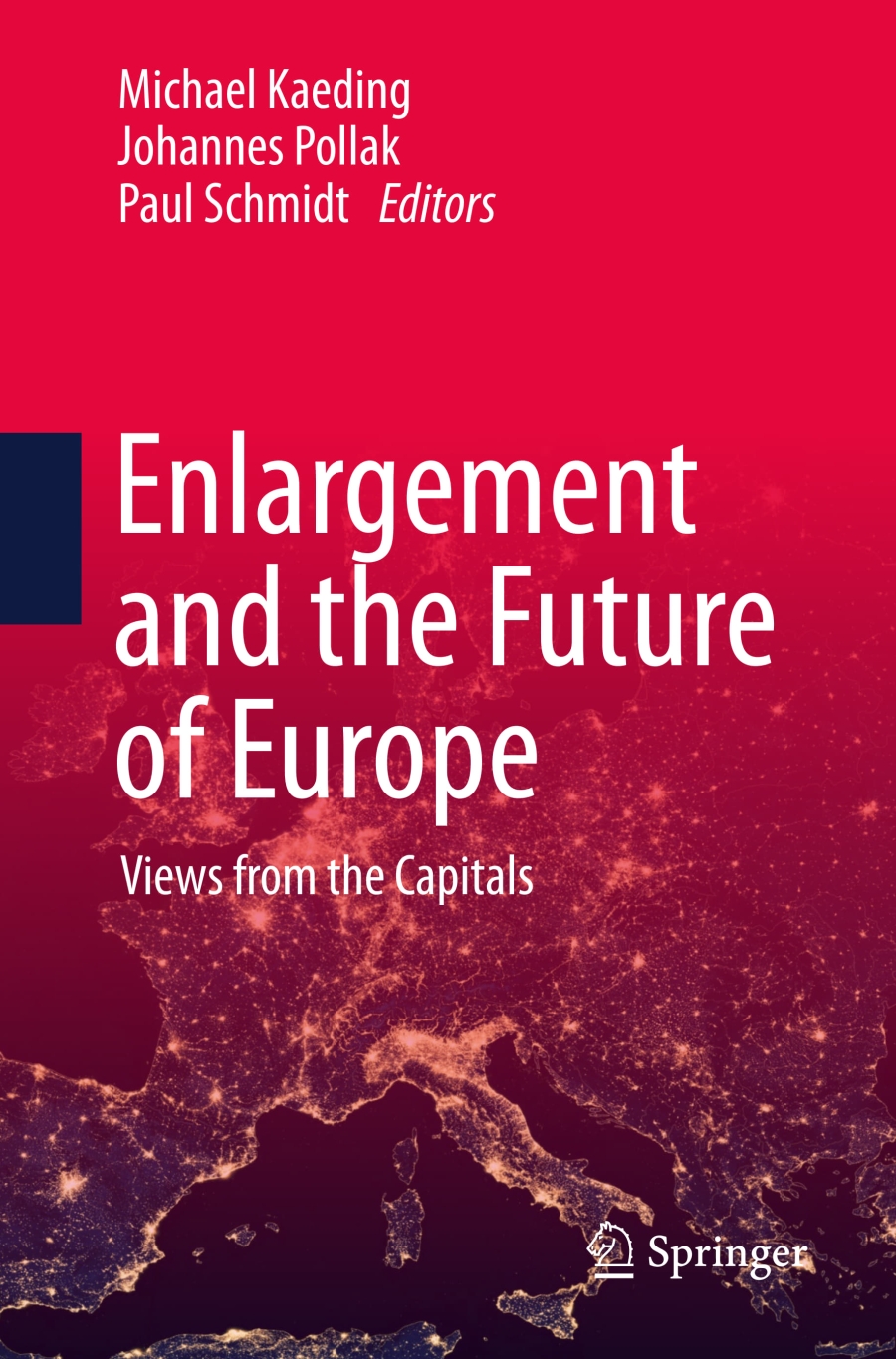Yuriy Yakymenko and Mykhailo Pashkov
In 2022 the European Union (EU) faced new circumstances and challenges that substantially changed its philosophy, principles and motives for further enlargement. This was caused by interrelated processes, namely the unprecedentedly severe clash between the collective West and an aggressive Russian Federation versus increasing global confrontation between the democratic civilised world and a camp of totalitarian states. Hence, the process of EU enlargement as a constituent part of its foreign policy will be increasingly shaped by political and security factors, which are now not just decisive for Europe, but the whole world. Ukraine is very much the focus of confrontation amongst global powers in Europe now, which determines the exclusiveness and importance of its integration into the EU.
The Cost of European Integration for Ukraine
Brussels is strategically interested in both resistance to Russian expansion into Ukraine as well as maintenance of interethnic peace and institutional stability in the conflict-ridden Balkan region. Integrated expansion as practised by Brussels is certainly a tested and most efficient enlargement tool in the area of stability for Europe. However, it should be accepted that the weight and cost of European integration for Balkan citizens versus Ukrainians are different, to put it mildly. With Ukraine defending the EU’s eastern flank against the Kremlin’s armed aggression on a 1000 km long front, it is no exaggeration to suggest that the future of Europe depends on the Ukrainian army.
During Russia’s unprovoked invasion, one of the deadliest in Europe since the Second World War, Ukraine has sustained colossal human, financial and economic losses. The aggressor practices missile terror against the civilian population intentionally ruins Ukraine’s housing, utilities, energy infrastructure, educational establishments and historic monuments. It pursues a policy of genocide against the Ukrainian nation, ultimately dedicated to its physical elimination.
Notably, this long all-out war has firstly demonstrated the readiness of Ukrainians to defend the sovereignty of their country and its development along the European path. Secondly, it has intensified the bilateral processes of European integration and changed the quality of Brussels’ policy regarding Ukraine. Thirdly, it has contributed to the unity and cohesion of the Ukrainian nation, enhanced public support for its movement to the EU and the processes of pro-European self-identification for citizens.
This is evidenced by the results of sociological surveys held by the Razumkov Centre. Public support for Ukraine’s accession to the EU is steadily gaining momentum. For instance, in March 2021, 59% of citizens believed that Ukraine should join the EU, but by October 2022, this share had increased to 79% (poll conducted by the Razumkov Centre Sociological Service) between 22 September and 1 October 2022 in all regions of Ukraine, except for the Crimea and occupied territories of Donetsk, Luhansk and Kherson regions. In the Zaporizhia, Mykolaiv and Kharkiv regions, results reflected only those territories which are controlled by the Ukrainian government and free from hostilities. Meanwhile, in 2022 public sentiments were clearly dominated by the processes of pro-European self-identification. While in previous years citizens were doubtful about their European identity, by October 2022, 63% not only reported feeling like Europeans, but also felt affiliation with the culture and traditions of the European community.
Ukraine’s acquisition of candidate status for EU membership certainly became a symbolic milestone event that gave an impetus to domestic socio-economic reforms, morally and psychologically encouraged Ukrainians, fighting for their country’s European future.
Current Tasks for Europe
Under conditions of war, Ukraine continues pro-European reforms in different areas, from the protection of human rights, social policy, energy and transport to digitalisation, public procurements and environmental protection. Progress in 24 priority areas is tracked in the government’s online monitoring system ‘Pulse of the Agreement’. Kyiv is deepening sectoral cooperation with Brussels, implementing provisions of the Agreement of Association and following the European Commission’s recommendations. Currently, the most important domains that require additional efforts include effective operation in the system of anti-corruption bodies and completion of judicial reform. In general, Ukraine needs three key conditions in implementing pro-European reforms: political will; the large-scale support of citizens and consistent assistance from the European Community.
Although the 24th Ukraine-EU Summit in February 2023 did not fully meet some of the Ukrainian authorities’ inflated hopes, its results were nevertheless important. These included providing all-round assistance to Kyiv in resisting Russian aggression, implementing reforms, accelerating integration into the EU markets and determining further guidelines for European integration (interim assessment in the spring of 2023 and a final report within the framework of the enlargement package by autumn).
In 2023, while in war, the Ukrainian government a) adopted a number of basic laws and implemented reforms as part of the European Commission’s “homework”; b) conducted an extensive self-audit of the national legislation’s compliance with EU norms; c) in recent months alone, adopted a number of important pro-European acts in various areas. All in all, this gives grounds to expect a positive report from the European Commission and a green light from the European Council to start the EU membership talks.
KYIV-Brussels: Strategic and Tactical Priorities
It is possible to single out a few key areas on which to focus:
1. this includes introduction of the ‘European lend-lease’, namely the prompt provision of comprehensive military assistance to Ukraine, to include: a regular supply of the necessary weapon; systemic financial support from the European Peace Fund; the establishment of joint defence industry enterprises and the expansion of training programmes for the Ukrainian military.
2. there is a need to implement the plan for Ukraine’s integration into European markets through: further liberalisation of trade cooperation; introduction of joint production, industrial, infrastructural projects, intensification of the EU investment policy; as well as the efficient employment of streamlined ‘visa-free procedures’ in energy, trade, customs and transport.
3. the ‘visa-free industry’ should be subject to an accelerated launch by way of anagreement on Conformity Assessment and Acceptance of industrial products (ACAA).
4. Ukraine needs to be integrated into the ‘Digital Europe’ programme.
5. target programmes for the Ukrainian economy’s recovery will need to be
implemented, covering: ruined infrastructure, housing and utilities; the social and cultural sector; assistance to small and medium businesses (latest calculations indicate that the EU package of credit assistance totalling EUR 18 billion for 2023 will only partially resolve the problem of social budget expenditures in Ukraine).
6. Priorities of the EU-Ukraine agenda include implementing Ukraine’s Peace Formula, concluding agreements on the provision of security guarantees to Kyiv under the G7 Joint Declaration of Support for Ukraine, and finding a legal formula for compensating Ukraine for its losses from the war at the expense of the aggressor’s frozen funds.
7. most importantly, a joint common position from EU Member States should be established regarding the beginning of negotiations on Ukraine’s accession.
EU Enlargement Policy: Specificities and Prospects
At the end of 2022, new prospective EU Members appeared. Bosnia and Herzegovina obtained candidate status, while Kosovo submitted its application for admission. This situation, on the one hand, complicates the process of further enlargement, particularly by adding scepticism to the opponents of enlargement in the countries of ‘old Europe’. On the other hand, it actualises the need for internal reforms within the EU. In this respect, in the authors’ opinion, the following steps seem reasonable:
Firstly, the European Council should develop and adopt a new strategic concept of EU enlargement that will set out the principles, bases, ways and prospects of admission for new countries to the EU. This should take into account the present-day realities and threats, as well as the present situation’s dynamics in Europe.
Secondly, the EU and its Member States’ leadership should accumulate political will for updating the EU’s basic documents to part with ‘the curse of consensus’ and shift to decision-making by a qualified majority. The benefits are evident, given the regular abuse of veto by countries such as Hungary.
Thirdly, the EU ‘Strategic Compass’ should be updated with an account of the current situation and view further enlargement of the EU as a key foreign policy priority, the tool for countering threats and challenges on the European continent.
Fourthly, the enlargement policy should be released from the ‘one basket’ traditional package approach. Candidate countries are at different stages of their movement to the EU and in different ‘weight classes’, with regard inter alia to the ‘security relevance’, current threats and challenges. Specifically, for Ukraine accession to the EU presents a key tool for the defence of freedom and national statehood.
Fifthly, official institute of curator countries, assisting with European integration of the candidates for admission, should be introduced.
Sixthly and lastly, present-day realities prompt the idea of further EU enlargement as a tool for countering internal and external challenges as well as threats, in particular expansion of the aggressive ‘Russian world’ into Europe. In this respect, a unified political will and resolve from Brussels’ eastern, primarily Ukrainian, policy acquires particular significance.
The European Commission’s support for production of this publication does not constitute an endorsement of the contents, which reflect the views only of the authors. Moreover, the Commission cannot be held responsible for any use which may be made of the information contained herein.
Source: springer.com





